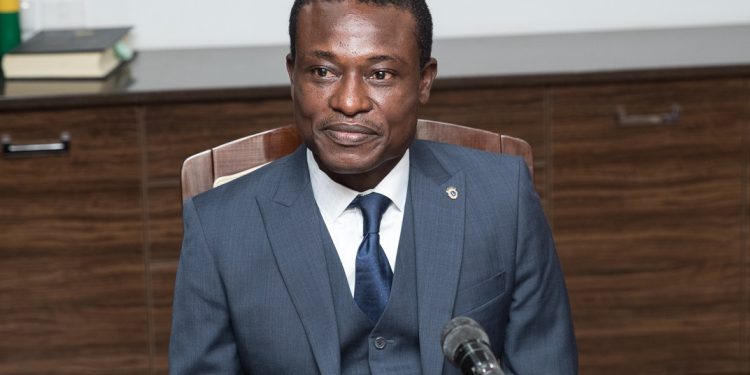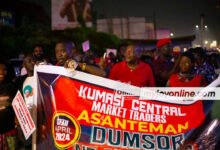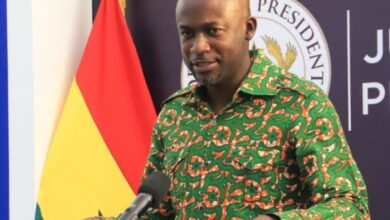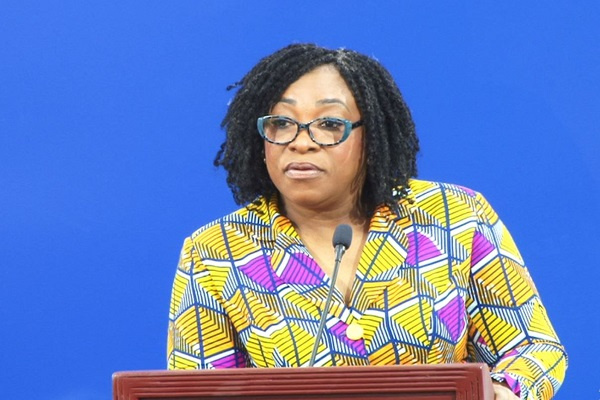Corruption Watch Petitions OSP To Probe Sir John’s Achimota Forest Lands

Corruption Watch Ghana has listed 10 specific issues relating to the alleged acquisition of state protected lands, including the Achimota Forest, by the late chief executive of the Forestry Commission, Kwadwo Owusu Afriyie, for the probing of the Office of Special Prosecutor.
In a petition issued Tuesday evening, the coalition of anti-corruption civil society organisations said the alleged acquisition of state lands as captured in documents purporting to be the “Last Will and Testament of Kwadwo Owusu Afriyie”, also called Sir John and executed on 21st May, 2020, indicates that he owns or jointly owns lands in the Achimota Forest and the Ramsar site at Sakumono in the Greater Accra region.
The petition to probe the ownership, sale, acquisitions and their propriety, is brought under Section 1, Subsection 3 of the Office of the Special Prosecutor Act, 2017 (Act 959) which mandates the Office of the Special Prosecutor to “investigate alleged or suspected cases of corruption or a corruption related offence involving public officers, Politically Exposed Persons….”.
Apart from Sir John, the petition also names “three artificial persons” – Jakaypros Limited, Fasoh Limited, and DML Limited, as well as an officer of the Forestry Commission, Charles Owusu, as alleged owners or part owners of the said lands who should also be investigated.
According to Corruption Watch, it wants the Office of the Special Prosecutor to investigate:
- Whether the said lands were owned by the Republic of Ghana at the time of their alleged acquisition by Kwadwo Owusu Afriyie, Jakaypros Limited, Fasoh Limited, DML Limited and Charles Owusu.
- The circumstances of the alleged acquisition
- The Beneficial Owners of the companies implicated in this transaction and compliance with the reporting requirements of such persons where they are PEPs under ss. 13, 35 and 126 of the Companies Act 2019 (Act 992)
- Who authorized the alleged sale or purchase of the lands?
- Whether the interests in the lands have been registered?
- Under what authority the person/s/ institution authorized the said sale or purchase?
- Whether any amount of money was paid for the said lands and to whom?
- Whether the PEP and public officers who own these properties have complied with the Code of Conduct for Public Officers under Chapter Four of the 1992 Constitution, particularly as it relates to Article 286 of the Constitution?
- The propriety or otherwise of the said sale or purchase?
- Whether other natural or artificial persons who are PEPs have also acquired lands illegally in the Achimota Forest and Ramsar site in Sakumono.
The specific lands, mainly in the Achimota Forest, complained of are:
- A 5.541-acre land located in the Achimota Forest held in the name of Jakaypros Limited
- A 0.987-acre land located in the Achimota Forest held in the name of Fasoh Limited
- A piece of land located in the Achimota Forest jointly owned with one Charles Owusu
- A piece of land held in the name of DML Limited located in the Achimota forest
- A 5.07- acre land located at the Ramsar area in Sakumono, Greater Accra
The petition signed by the Technical Advisor to Corruption Watch Ghana, William Nyarko, points out that Sir John was “a public officer and a Politically Exposed Person within the meaning of the Office of the Special Prosecutor Act, 2017 (Act 959), when he served as the CEO of the Forestry Commission and singularly or jointly allegedly acquired the said lands with other natural and artificial persons during the period he was the CEO of the said Commission.”
“We also refer to Section 179C of the Criminal Offences Act, 1960 (Act 29) which makes it an offence for a person to use public office for profit. We note that the offence is committed by both the person who holds public office who dishonestly abuses the office for private profit or benefit, and other persons who collaborate with the public officer to so abuse the office. We also believe that other offences might have been committed under the Public Property Protection Act, 1977 (SMCD 140) if these allegations are determined to be true.”
Source: Graphic








